Nautilus Institute’s Policy Forum‘s focus is on the timely publication of expert analysis and op-ed style pieces on the foremost of security-related issues to Northeast Asia. Its mission is to facilitate a multilateral flow of information among an international network of policy-makers, analysts, scholars, media, and readers. Policy Forum essays are typically from a wide range of expertise, political orientations, as well as geographic regions and seeks to present readers with opinions and analysis by experts on the issues as well as alternative voices not typically presented or heard. Feedback, comments, responses from Policy Forum readers are highly encouraged.
A tale of two disasters

While contrasting the outcomes of two separate natural weather events in a rich and a poor country, namely the US and India, Nikhil Desai writes that “the poor suffer the climate whether or not it changes, whether the change is natural or anthropogenic, and whether or not their or anybody else’s greenhouse gas emissions are reduced or constrained. The rich countries – and the rich among the poor countries – enjoy a physical and service infrastructure, and insurance protections, that sharply limits their physical vulnerability to climate….It is not necessary to “combat global warming”; the first business at hand is to curb climate vulnerabilities.”
Nikhil Desai is the Energy Security contributor for the NAPSNet Weekly report.
Go to the articleHow Should We Understand Sino-U.S. Relations in the New Great Power Relationship?
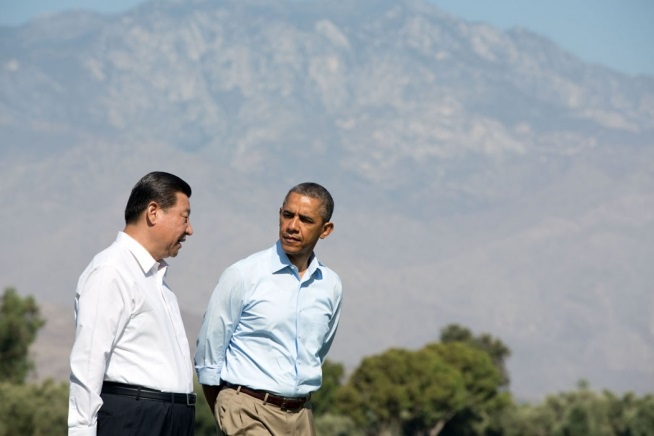
Chinese language post In this Policy Forum, Chen Jimin, rhetorically asks, “how should we understand Si…
Go to the articleDefining denuclearization

In this Policy Forum Roger Cavazos explores the definition of ‘denuclearization’. He writes “Denuclearization …
Go to the articleEstablishing the Context for Climate Change Adaptation
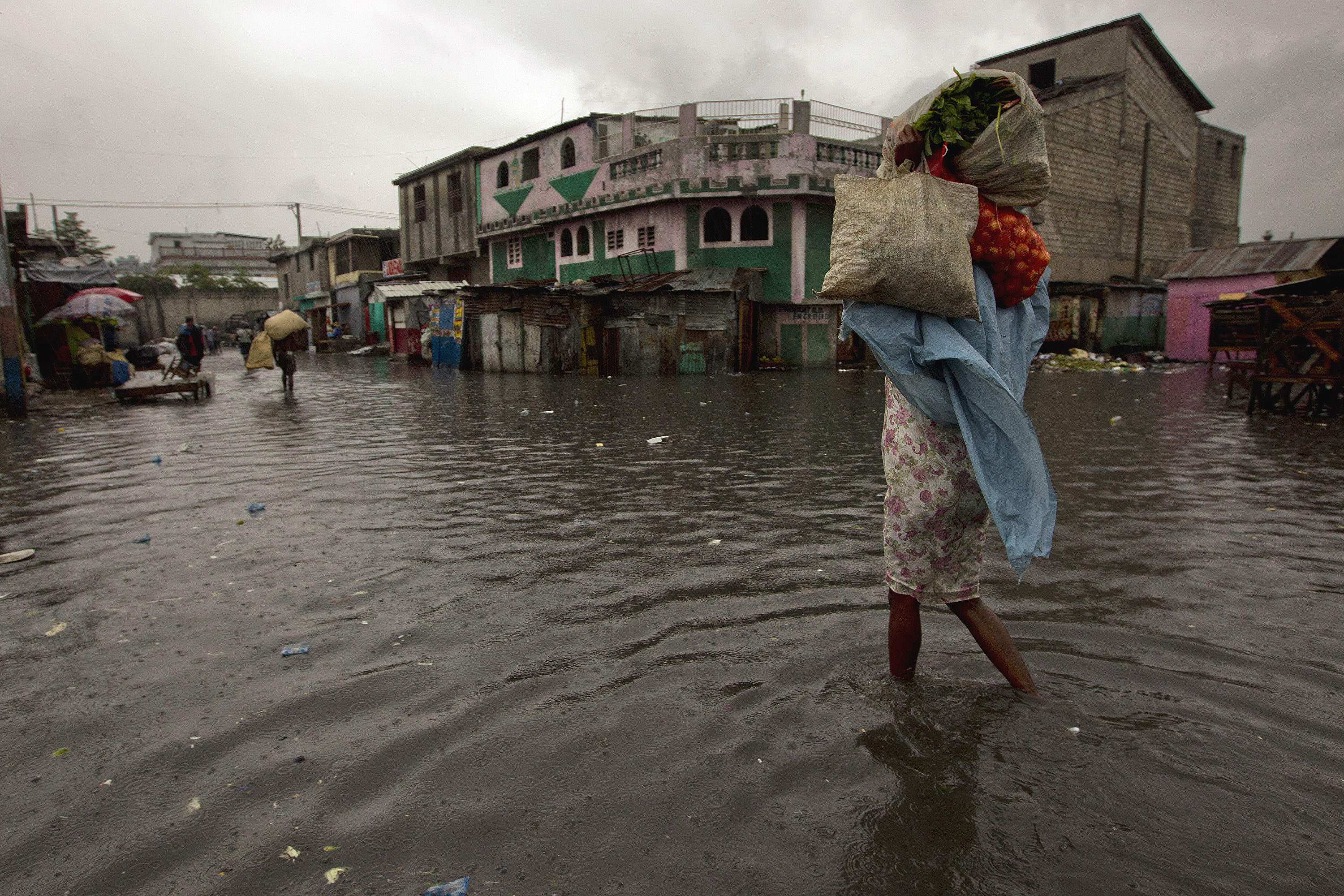
Saleem Janjua writes “For developing-country local governments to start any climate adaptation actions, it is important to secure a high level commitment from local leaders….Once the vision for climate adaptation action in local governments is formulated by the political and public-sector local leadership and understood by the staff as well, strategies to adapt to climate change can then be developed easily.”
Saleem Janjua is the Climate Change Adpation contributor to the NAPSNet Weekly Report, and the Editor of AdaptNet.
The views expressed in this report d
Go to the articleRe-Branding Abe-Nationalism
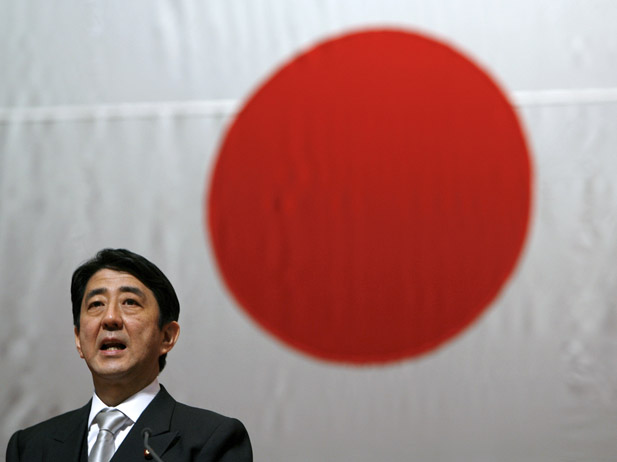
Tessa Morris-Suzuki writes ‘in recent months sections of the media in Japan, and even internationally, have gone into overdrive to sell the message that Japanese Prime Minister Shinzo Abe is not a nationalist.
‘Those who care about the future of Japanese society should not allow the dazzle of verbal juggling to induce a political version of the Gruen Transfer. The prime minister’s ideology may be re-branded for the global market, but the old adage remains: buyer beware.’
Tessa Morris-Suzuki is a historian of modern Japan and Korea. She is Professor in the School of Culture, History and Language, College of Asia and the Pacific, the Australian National University.
Go to the articleUS-China: Joined At The Hip
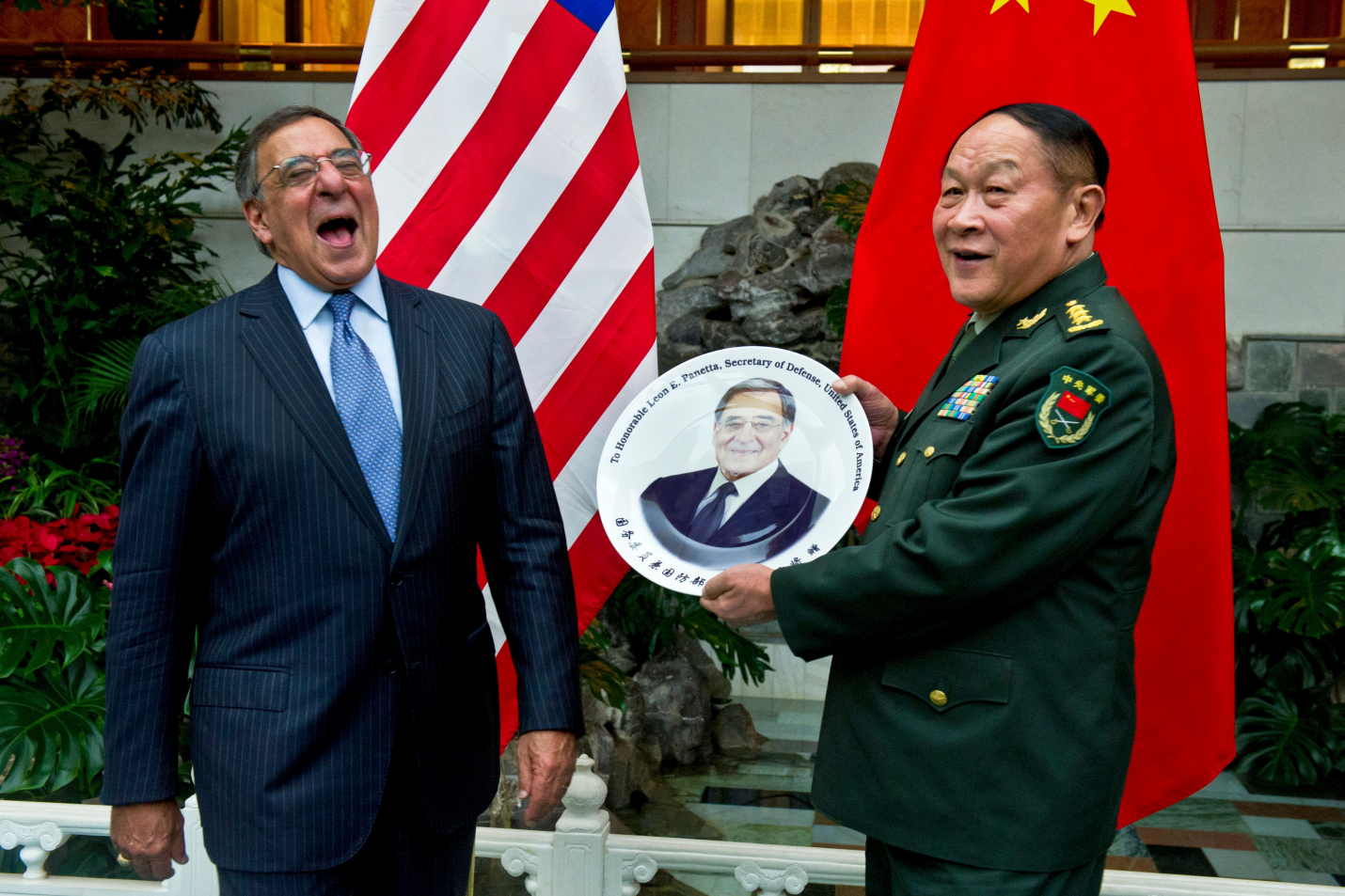
by Peter Hayes June 27, 2013 I. Introduction Peter Hayes writes “The tug of war over Taiwan and the contest between the US and Chinese military to deny access to the other in China’s coastal zone and the western Pacific States is……simply the most dangerous possible conflict in the region….Yet even here, we find that […]
Go to the articlePark Geun-Hye’s China Challenge
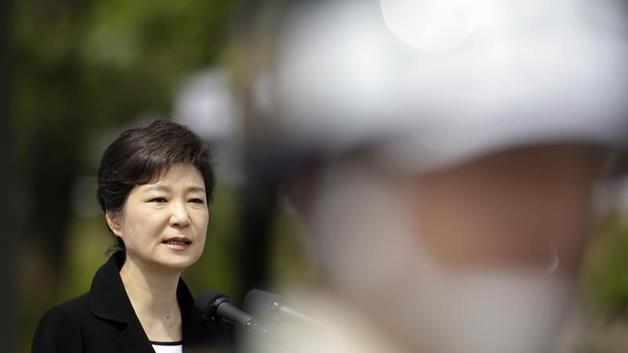
Is it possible for President Park to get China to commit to more than a symbolic statement regarding North Korea’s nuclear weapons program during her upcoming meeting with President Xi Jinping? According to Peter Hayes, “The answer is definitely yes. South Korea can propose at least three types of “three party talks” at the Summit that would put South Korea in the driver’s seat, and break the deadlock with North Korea. These are all consistent with the eventual resumption of the Six Party Talks, although they do not depend upon this happening to have positive effects.” He goes on to state that, “At this juncture, only President Park can provide the necessary leadership to move this agenda forward.”
Peter Hayes is the Executive Director of the Nautilus Institute and a Professor at RMIT University.
Go to the articleThe South China Sea: Evolution of or Disregard for International Law?
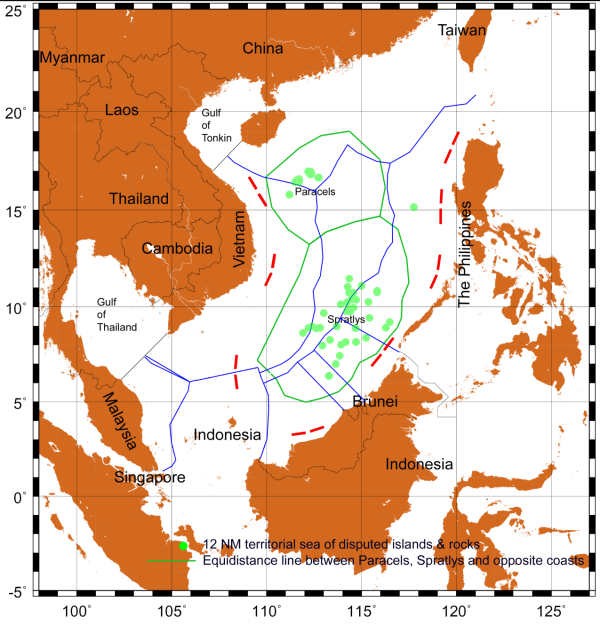
Huy Duong and Tuan Pham analyze statements that Mark Valencia, in his article The South China Sea: What China Could Say, asserts that China could potentially issue in order to ‘clarify its position regarding its maritime claims and actions in the South China Sea.’ Huy Duong and Tuan Pham conclude that these statements show that China’s stance is at odds with the current regime of international law in a way that cannot be addressed by rhetoric or justified as evolution of international law. Mark Valencia offers a rejoinder to this response.
Huy Duong works at the Southeast Asian Sea Foundation and contributes articles to the BBC and Vietnam’s online publication VietNamNet. Tuan Pham is an Associate Professor at the University of New South Wales. The authors wish to thank David Brown and Dang Vu for valuable comments.
Mark J. Valencia is a Visiting Senior Scholar at the National Institute for South China Sea Studies, Haikou, China.
Go to the articleA Regional Framework for a Comprehensive Security Settlement in the Korean Peninsula
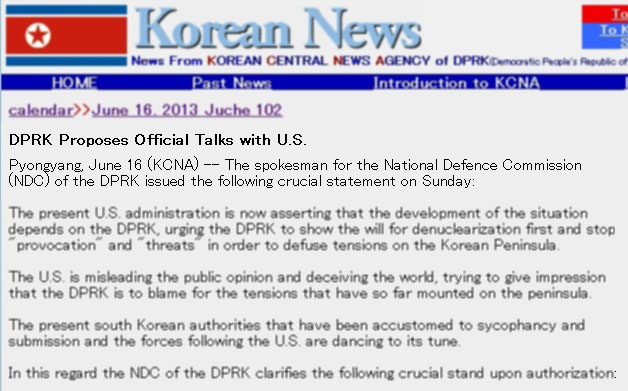
James Goodby writes that if the Administration’s “pivot to Asia” is meant to signal a new era of American activism in the Asia-Pacific region, the president should describe to his partners in Asia how he sees the elements of a comprehensive security settlement coming together. A beginning can be made by defining the categories of security issues that need to be addressed, and by which states. The three main categories are:
(1) issues left over from the 1950-53 Korean War and the elements of a North-South peace regime (most of which have solutions that have been formally agreed upon in past statements issued by the North and South Korean Governments and many have been at least implicitly endorsed this year by Kim Jong-un)
(2) issues related to North Korea’s nuclear weapons program (and President Obama’s call for “a world without nuclear weapons” could be a device for placing a de facto nuclear weapons-free zone on the agenda to address this), and
(3) issues related to regional inter-state relations in Northeast Asia (one approach to solving these would be to organize something like an Organization for Security and Cooperation in Europe (OSCE) for Northeast Asia).
James Goodby is a Nonresident Senior Fellow at the Center for Northeast Asia Policy Studies, The Brookings Institution. Ambassador Goodby’s analysis does not necessarily reflect the opinions of the institutions with which he is affiliated.
Go to the articleChina and the United Nations Sanctions on North Korea

In this Policy Forum Zhang Guihong argues that United Nations Resolutions on North Korea, while necessary, wil…
Go to the article
